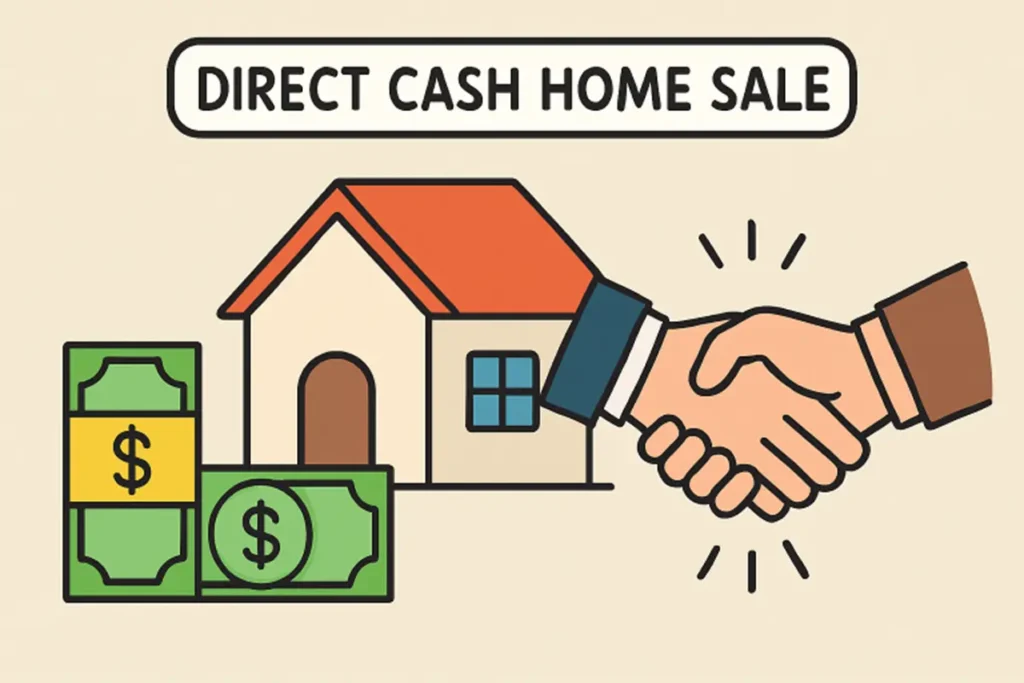Table of Contents
- What Is a Cash Home Sale?
- Common Reasons Homeowners Choose Cash Buyers
- Initial Steps: Assessing Your Property and Researching Buyers
- The Offer Process: What to Expect
- Inspections, Appraisals, and “As-Is” Homes
- The Closing Timeline: How Fast Do Cash Sales Really Move?
- Legal and Financial Considerations
- Pros and Cons: Is a Cash Sale Right for You?
What Is a Cash Home Sale?
A cash deal can close in as little as one to two weeks. For motivated sellers, working with cash buyers can be a strategic way to sell your home for cash without the hassles of traditional listings, open houses, and extensive negotiations. This method is particularly advantageous for those looking to sell inherited properties, manage urgent relocations, or avoid costly repairs, as cash buyers often purchase homes “as-is,” simplifying the entire process. To sell smart, homeowners should research reputable cash buyers, compare offers, and understand the terms before committing, ensuring they maximize value while minimizing risk and stress.
Common Reasons Homeowners Choose Cash Buyers
Due to specific circumstances, many homeowners turn to cash buyers when they need to sell their property fast. Some need a quick sale to relocate for work or personal reasons, while others face financial distress or the threat of foreclosure and require rapid access to equity. In other cases, inherited properties or homes that are unwanted or in disrepair may prompt owners to consider cash sales rather than tackling costly repairs or the drawn-out traditional sales process. Choosing a cash sale often means less stress and a predictable closing date, making it an attractive route for those seeking efficiency and certainty.
Initial Steps: Assessing Your Property and Researching Buyers
Before you embark on a cash sale, it’s crucial to understand your home’s current market value. Tools like online estimators, recent neighborhood sales, and professional appraisals can give you a baseline. Once you know your property is worth, research potential cash house buyers. Look for established companies and individuals with a track record of transparent deals—reading online reviews and checking references can provide further confidence. Doing this homework will help you distinguish reputable buyers from less scrupulous ones.
The Offer Process: What to Expect
The typical cash sale process starts with an initial inquiry, followed by a property walk-through or inspection by the buyer. Once the buyer assesses the home and reviews recent sales, they’ll present an offer—usually at a discount compared to market value, reflecting the speed and convenience they provide. Common negotiation points include the final sale price, closing costs, and required repairs. After reviewing and potentially negotiating the offer, both parties agree on the terms and sign a purchase agreement. From there, the process moves swiftly to closing.
Inspections, Appraisals, and “As-Is” Homes
Many cash buyers purchase homes in “as-is” condition, meaning the seller does not need to make repairs or improvements. However, some buyers still conduct basic inspections to identify major structural issues or safety hazards. The “as-is” nature can benefit sellers by passing responsibility for repairs to the buyer, though it may mean accepting a lower sale price. Sellers should weigh these factors and be aware that while skipping repairs can save time, it may reduce overall returns.
The Closing Timeline: How Fast Do Cash Sales Really Move?
The accelerated timeline is one of the biggest advantages of selling a home for cash. Most cash home sales close within seven to 21 days, compared to the 30–60 days for financed transactions. The timeline depends on the buyer’s proof of funds, property condition, and title clearances. Delays may arise with outstanding liens or complex paperwork, but cash purchases generally involve fewer obstacles.
Legal and Financial Considerations
Understanding the legal documents involved in a cash sale is critical. Key paperwork includes the purchase agreement, property disclosures, closing statements, and the deed transfer. Sellers should consult a real estate attorney or trusted professional to review all documents and protect their interests. It’s also essential to watch for red flags, such as buyers refusing proof of funds or pressuring you to make a quick decision without paperwork.
Pros and Cons: Is a Cash Sale Right for You?
Cash sales are best suited for homeowners needing quick solutions, dealing with distressed properties, or bypassing the challenges of typical real estate listings. As with any financial transaction, weigh your options, consult knowledgeable professionals, and remember that the right solution will depend on your unique situation.
Also read-Quick, Stress-Free Home Selling Tips


